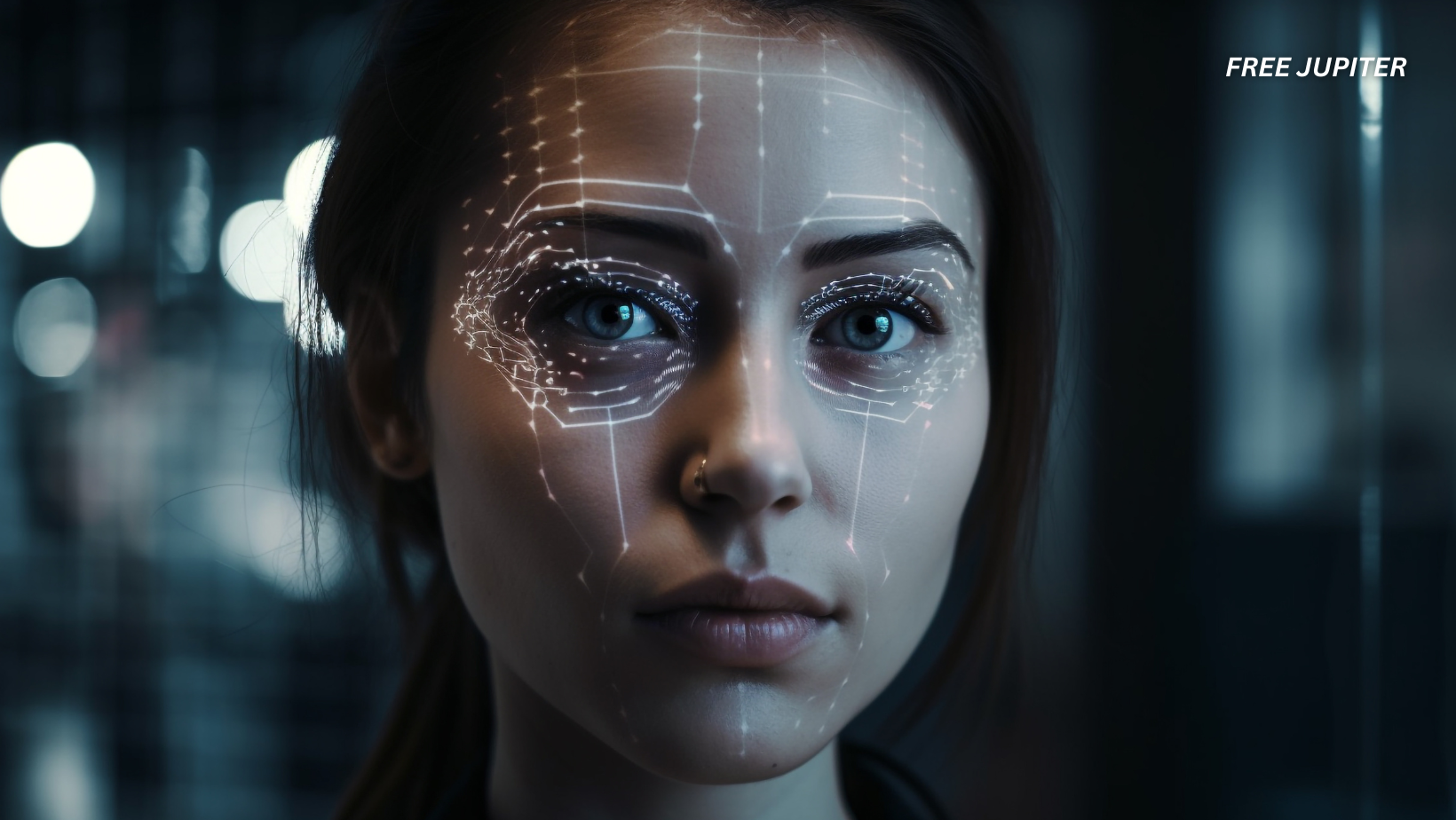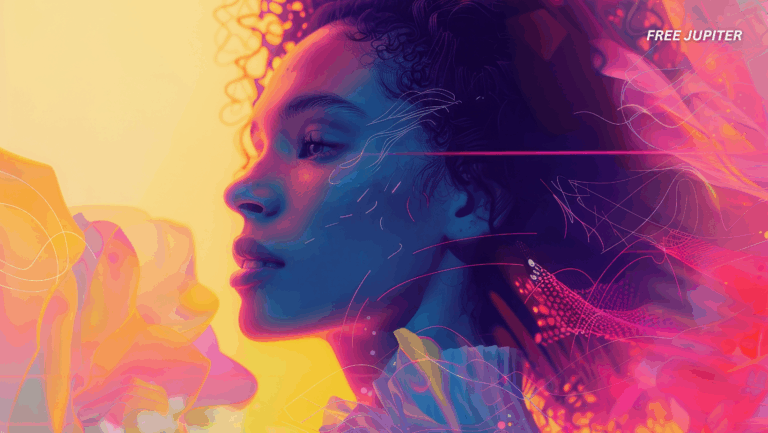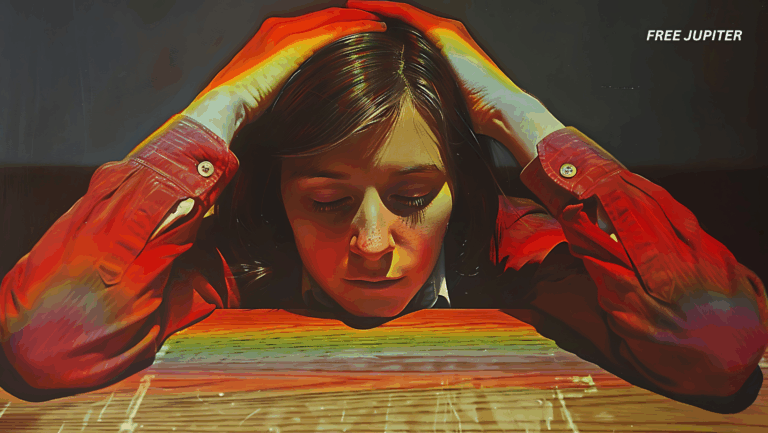Friendly Note: FreeJupiter.com shares general info for curious minds 🌟 Please fact-check all claims—and always check health matters with a professional 💙
Imagine waking up one morning only to find a video of yourself circulating online—a video where you’re doing or saying something you never actually did. It’s your voice, your face, your expressions, but… it’s all fake. Thanks to rapidly advancing artificial intelligence, this dystopian scenario isn’t science fiction anymore. It’s reality.
But Denmark isn’t taking it lying down.
In a pioneering legal move, the Danish government is planning to overhaul its copyright laws to give every person in the country a rather futuristic right: copyright over their own face, body, and voice. In other words, the government wants to make it illegal for anyone—or any machine—to copy you without your say-so.
Why This Matters: The Rise of Deepfakes
Deepfakes are AI-generated digital imitations that look and sound just like real people. Think of them as ultra-convincing digital puppets made by training software on someone’s photos, videos, or voice recordings. Once made, they can be used to make someone appear to say or do anything—from singing opera to committing crimes—without their consent.
This technology is evolving at lightning speed. What once took a skilled video editor hours now takes just a few minutes using an app or AI tool. That’s fun when it’s used to turn you into a Marvel character. But it’s not so fun when it’s used to spread fake news, harass people, or damage reputations.
This is the growing digital danger Denmark wants to address.
Denmark’s Solution: A Law to Safeguard Your Digital Identity
Culture Minister Jakob Engel-Schmidt is leading the charge. He announced that Denmark is preparing legislation that would give every individual the right to control and protect their own image, voice, and likeness from unauthorized digital reproduction.
“We are sending a crystal-clear message,” Engel-Schmidt said, “that every person has the right to their own body, voice, and facial features.”
This might sound obvious—of course you own your own face, right? But current copyright laws weren’t designed with AI-generated media in mind. Traditionally, copyright protects creations—like books, films, or songs—not people themselves. That’s why this change is so significant. Denmark wants to expand the scope of copyright to make your identity a protected asset, just like your artwork or your music.
Read more: Leaked AI Conversations Show Users Are Asking ChatGPT to Cross Ethical Boundaries
🔍 What the Proposed Law Will Actually Do
At first glance, Denmark’s new law might seem like just another government policy update—but in reality, it’s a bold attempt to redefine how personal identity is protected in the digital age. With artificial intelligence blurring the lines between real and fake, this law aims to give people a digital shield—a legal way to say, “That’s not me, and I didn’t give permission.”
Here’s what the law proposes to change, in simple and expanded terms:
✅ 1. Your Face, Your Rules: Legal Ownership of Your Likeness
The biggest change is the idea that your appearance, voice, and body—basically, the essence of “you”—would be legally protected, much like a copyrighted song or a painting.
This means that if someone (or something, like AI) makes a realistic video, photo, or audio clip that uses your face, voice, or body without your permission, you would have the legal right to take action.
Whether it’s a fake video showing you in a scandalous situation, or a phony voice message asking your friend for money, you would now have the right to say: “Take that down. That’s not me, and I didn’t agree to this.”
🧑🎤 2. Artists and Performers: No More Digital Cloning Without Consent
This law is especially important for people in the public eye—actors, musicians, influencers, and public speakers—whose voices and images are often used or mimicked for entertainment, advertisements, or political manipulation.
Under the new rule, realistic digital replicas of performances—like recreating a singer’s voice for a new song or using an actor’s face in an ad—would require explicit permission from the original artist. If someone skips that step, they could face consequences like lawsuits or financial penalties.
No more slipping someone’s likeness into a commercial or video game without a signed contract.
🧹 3. Clean-Up Power: The Right to Demand Takedowns
The law would empower individuals to request that deepfake or AI-generated content be removed from platforms like YouTube, TikTok, Instagram, or wherever it’s posted—if it was shared without permission.
This gives you more control over your digital footprint. For example, if a fake video of you pops up online, and you had nothing to do with it, this law would give you the legal right to report it and demand its removal.
It’s like having a digital “cease and desist” button.
💸 4. Compensation: Legal Remedies for Harm Done
If someone suffers emotional, reputational, or financial damage because their likeness was misused through a deepfake, this law gives them a path to seek compensation. That could mean suing the person who created the fake, or even holding the platform accountable if they ignored takedown requests.
In short: if a fake video causes real harm, there could be real consequences.
⚖️ 5. Platform Accountability: The End of Hands-Off Hosting
Tech companies will no longer be able to say, “Not our problem.”
If the law passes, online platforms will have a legal responsibility to respond to takedown requests related to unauthorized deepfake content. If they don’t act quickly or properly, they could face stiff penalties, including large fines.
This pushes platforms to improve their AI-detection tools, streamline reporting processes, and be more proactive in protecting users.
Read more: Artificial Intelligence Can Now Replicate Itself—And It Has Experts Terrified
🎭 6. Room for Humor: Parody and Satire Still Allowed
Denmark doesn’t want to kill comedy. The law makes it clear that satire and parody will still be protected.
This means comedians, meme-makers, and political cartoonists can still imitate public figures—as long as it’s clearly humorous or satirical, and not intended to trick or harm. Think Saturday Night Live skits or TikTok impersonations done for laughs. These would be fine.
What’s not okay: making a fake video of someone “confessing” to a crime, or placing a celebrity in a fake ad without their okay.
🌍 7. A Model for Others: Denmark’s Push for International Change
This law isn’t just for Danes. Denmark hopes it will spark a movement.
By taking the lead, Denmark is setting a precedent that could inspire similar laws across Europe and beyond. The country plans to use its upcoming EU presidency to bring this issue to the European Union, aiming for broader, EU-wide protections.
The long-term goal? To make sure that in the digital world, every person—no matter where they live—has legal ownership over who they are.
Backed by Lawmakers—And Maybe Soon the Whole EU
This isn’t a fringe idea. Denmark’s plan has gained support from nine out of ten Danish MPs, showing rare political unity. The culture ministry intends to open the proposal for public consultation before the summer ends, with a formal bill expected to be submitted in the autumn session of parliament.
Engel-Schmidt also hopes Denmark will inspire other nations to follow suit. When Denmark takes over the rotating presidency of the European Union, he plans to bring this idea to the broader European stage. If other countries agree, we could see similar protections rolled out across the continent.
Tech Platforms, Take Note
This law is not just a symbolic gesture. It has teeth.
If platforms like YouTube, Facebook, TikTok—or even AI tools themselves—don’t comply with takedown demands under the new law, they could be hit with “severe fines”. If necessary, Denmark is prepared to escalate the matter to the European Commission, making this an international concern.
According to Engel-Schmidt, this should send a strong signal to tech companies: “Take this seriously, or we’ll make sure you do.”
What’s at Stake: More Than Just Fake Videos
At its core, this law is about more than just stopping embarrassing fake videos. It’s about protecting human dignity in a digital age.
Deepfakes can be used in all sorts of harmful ways:
- Scams, where AI-generated voices trick people into sending money.
- Revenge, where fake explicit content is used to harass or shame.
- Misinformation, where public figures are made to appear as if they said things they never did.
- Cultural and creative theft, where artists, musicians, or actors are copied without being paid or asked.
By establishing a legal right to one’s own likeness and voice, Denmark is drawing a line: you are not public property just because your image is online.
Read more: New Artificial Tongue Accurately Mimics Human Taste Perception Using AI And Graphene
A Step Into the Future of Digital Rights
Denmark’s proposed law could mark a turning point in how societies handle identity in the AI era. In much the same way we once had to develop laws to regulate photography, film, and the internet, we’re now at a similar crossroads with artificial intelligence.
Who owns your image in a world where AI can copy it perfectly?
If Denmark has its way, the answer will soon be: you do.










